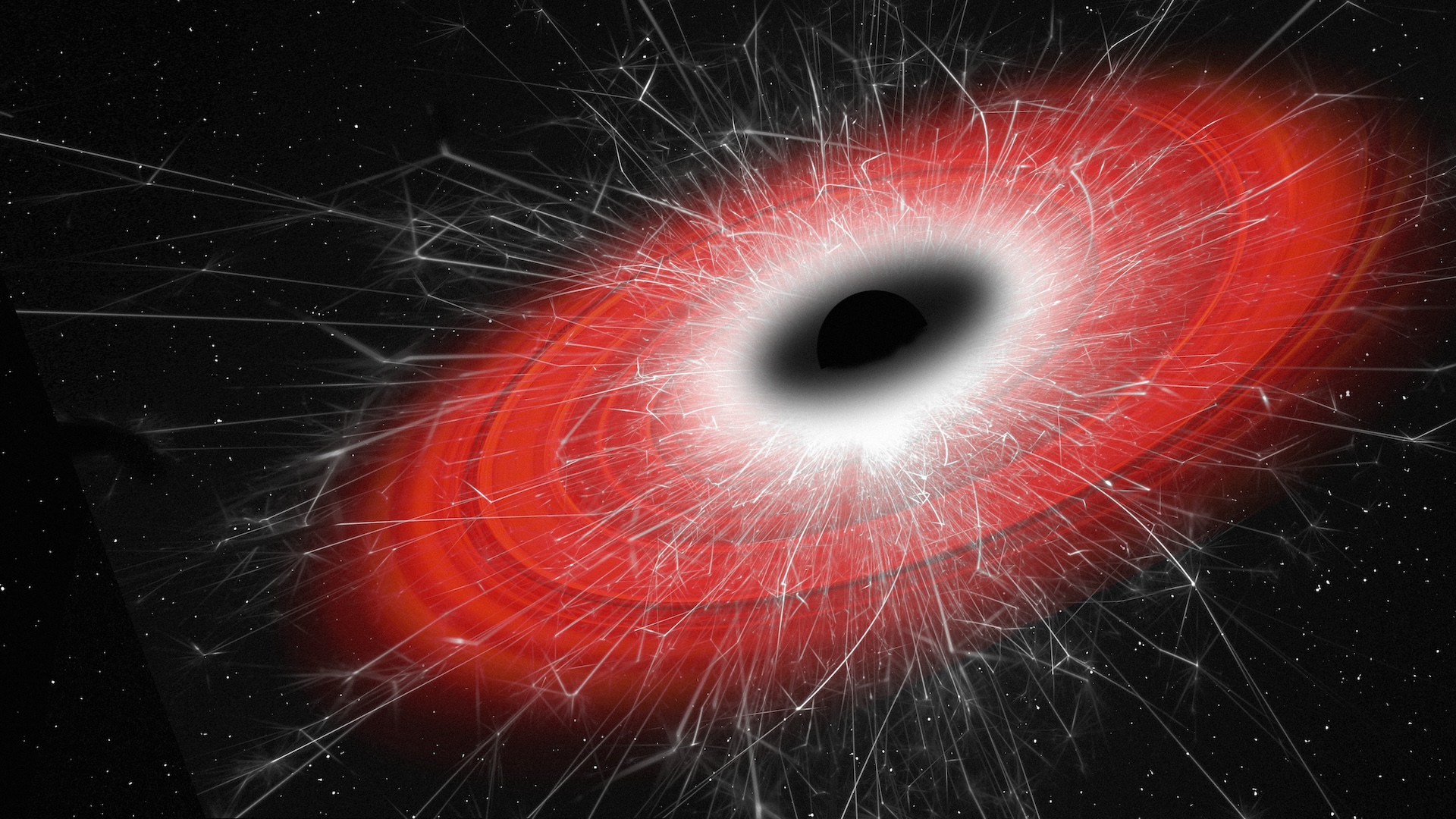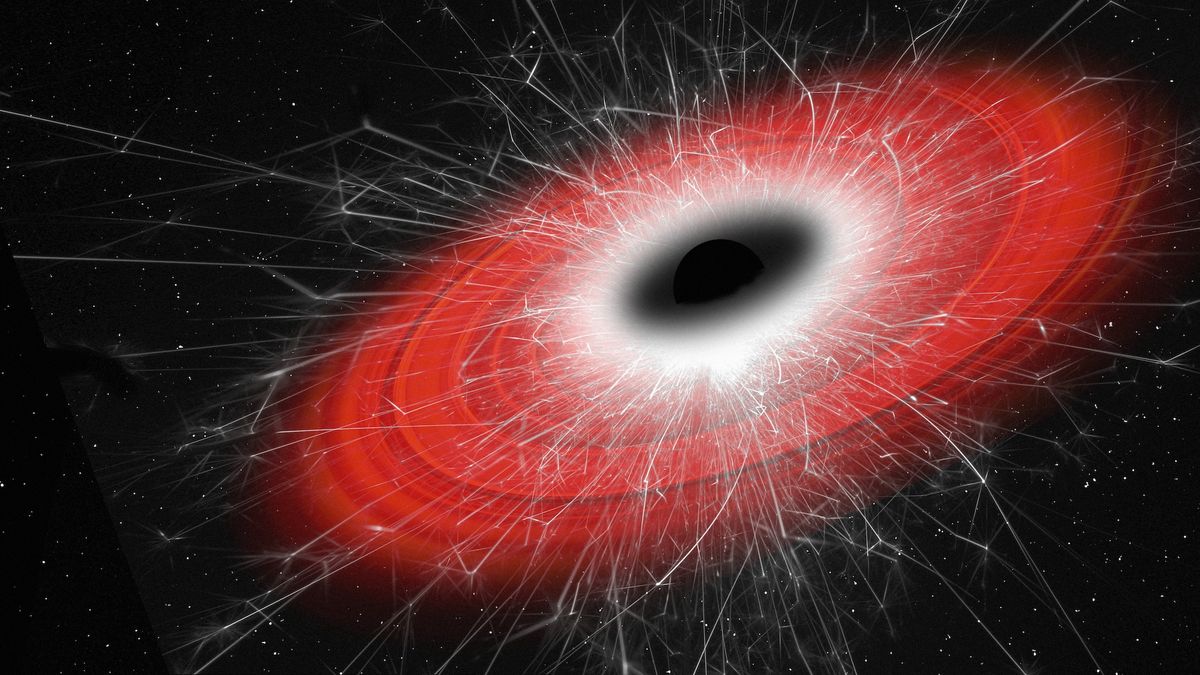
Five decades ago, famed astrophysicist Stephen Hawking theorized that the Big Bang may have flooded the universe with tiny black holes. Now, researchers believe they may have seen one explode.
In Feb. 2025, the European collaboration KM3NeT — which consists of underwater detectors off the coasts of France, Italy and Greece — announced the discovery of a stupendously powerful neutrino. This ghostly particle had an energy of around 100 PeV — over 25 times more energetic than the particles accelerated in the Large Hadron Collider, the world’s most powerful atom smasher.
Physicists have struggled to come up with an explanation for such an energetic neutrino. But now, a team of researchers who were not involved in the original detection have proposed a surprising hypothesis: The neutrino is the signature of an evaporating black hole. The team described their proposal in a paper that was uploaded to the arXiv database and has not been peer-reviewed yet.
Hawking’s elephant-size black holes
In the 1970s, Hawking realized that black holes aren’t entirely black. Instead, through complex interactions between the black hole event horizon and the quantum fields of space-time, they can emit a slow-but-steady stream of radiation, now known as Hawking radiation. This means black holes evaporate and eventually disappear. In fact, as the black hole gets smaller, it emits even more radiation, until it essentially explodes in a firestorm of high-energy particles and radiation — like the neutrino spotted by the KM3Net collaboration.
But all known black holes are very large — at least a few times the mass of the sun, and often significantly larger. It will take well over 10^100 years for even the smallest known black holes to die. If the KM3NeT neutrino is due to an exploding black hole, it has to be much smaller — somewhere around 22,000 pounds (10,000 kilograms). That’s about as heavy as two fully grown African elephants, compressed into a black hole smaller than an atom.
The only known potential way to produce such tiny black holes is in the chaotic events of the early Big Bang, which may have flooded the cosmos with “primordial” black holes. The smallest primordial black holes produced in the Big Bang would have exploded long ago, while larger ones might persist to the present day.
Unfortunately, a 22,000-pound black hole should not survive all the way from the Big Bang to the present day. But the authors pointed out that there might be an additional quantum mechanism — known as “memory burden” — that allows black holes to resist decay. This would allow a 22,000-pound black hole to survive for billions of years before it finally exploded, sending a high-energy neutrino toward Earth in the process.
Primordial black holes might be an explanation for dark matter — the invisible substance that accounts for most of the matter in the universe — but so far, searches for them have turned up empty. This new insight may provide an intriguing clue. The researchers found that if primordial black holes of this mass range are abundant enough to account for all the dark matter, they should be exploding somewhat regularly. They estimated that if this hypothesis is correct, the KM3NeT collaboration should see another showstopping neutrino in the next few years.
If that detection happens, then we may just have to radically rethink the way we approach dark matter, high-energy neutrinos and even the physics of the early universe.

